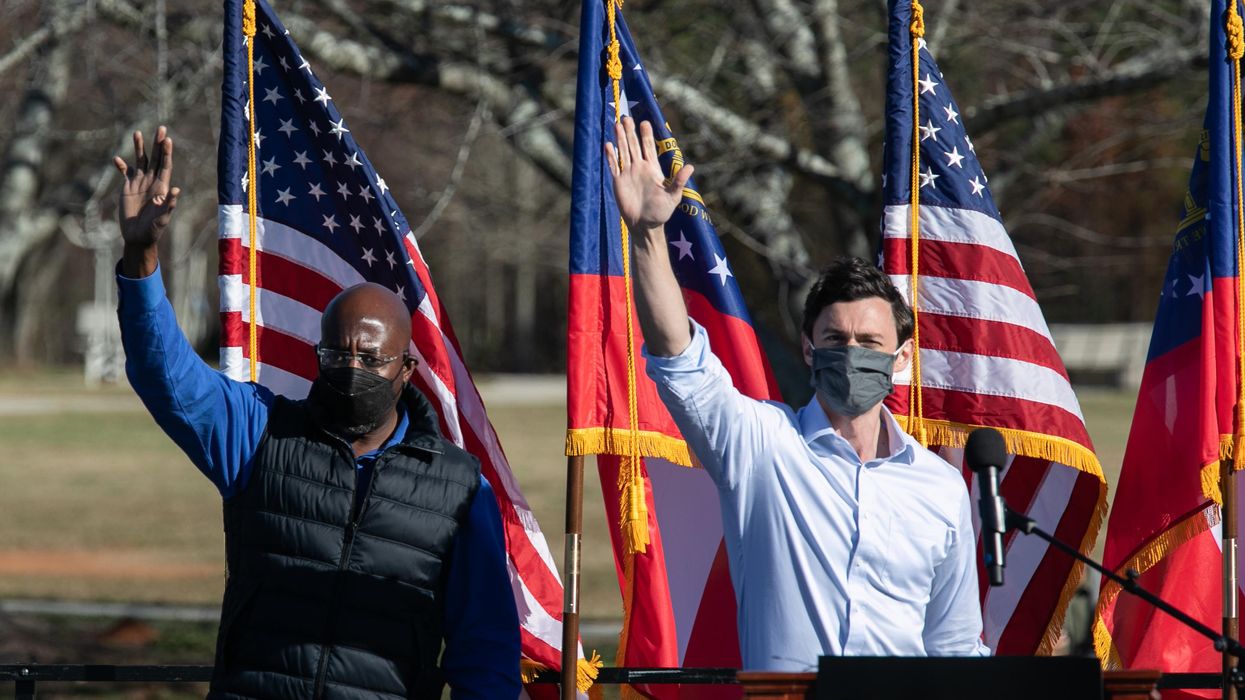Just as young voters played a significant role in turning Georgia blue for president this fall, they may also be paramount in determining which party controls the Senate.
And with so much riding on the runoff elections in four weeks for both the state's Senate seats, civic engagement organizations and political groups have been firing on all cylinders to find and register new voters by Monday's deadline. They are particularly interested in the 23,000 Georgians who weren't old enough to vote this fall but will pass their 18th birthdays by Jan. 5.
That may seem like a relatively tiny number in a state with 5 million votes in the general election. But the number is twice as big as Joe Biden's margin of victory all three times Georgia's presidential ballots have been counted. And, in a contest with turnout sure to be way down from November, the import of each ballot will be greater.
And the stakes have also become even bigger than they appeared a month ago. Victories by both challengers, documentary filmmaker Jon Osoff and the Rev. Raphael Warnock, would allow the Democrats to control the Senate next year with 50 votes and the tie-breaking power of Vice President Kamala Harris. But Congress will remain under divided control, hobbling the chances of Biden's agenda, with the return of even one of the Republican incumbents, David Perdue and Kelly Loeffler.
In November, Georgia had the highest participation by young people anywhere in the country, with one-fifth of all votes cast by people younger than 30, according to researchers who study the youth vote at Tufts University. Such people cast 16 percent of the vote nationally.
And the exit polls then suggest the youth vote was crucial to the Democrats' fortunes. Biden, the first of his party to carry the state since 1992, secured his razor-thin margin with 56 percent of the under-30 vote, his strongest showing among four age groupings. Ossoff bested Perdue among such voters by 11 percentage points and Warnock won the youth vote over Loeffler by 16 points. (Because there were other candidates, none of the four candidates cracked 50 percent of the vote, the requirement for all statewide contests in Georgia.)
Turnout in the Peach State increased more than 20 percent, with nearly a million more votes cast than in 2016. But participation in the second round seems guaranteed to be less, even though the twin contests may generate more political spending than any similar races in American history. Turnout declined at least 43 percent from November in each of Georgia's previous four runoffs.
The election's scheduling right after the holiday season, and during the worst projected phase for the coronavirus pandemic, will make it especially difficult to persuade Georgians to mail in another ballot or head to the polls again.
To inform voters of the timetable, national and regional partisan and ostensibly nonpartisan groups have returned to social media and revived their phone banks — a continuation of the robust digital campaigns they ran after Covid-19 made in-person efforts essentially impossible since last March.
To bolster Republican support in the runoffs, the conservative Faith & Freedom Coalition has been conducting registration efforts through the state's 5,000 evangelical Christian churches. The national and state chapters of the College Republicans have been focused on reaching young voters on the state's 75 campuses.
Their efforts may be hurt, though, by the intense GOP strife created by President Trump and his repeated efforts to delegitimize the state's results and his intensifying criticism of the state's Republican election officials
Democrat Stacey Abrams, one of the country's most prominent voting rights advocates, has been credited with registering 800,000 Georgians in the two years since narrowly losing the governor's race. Her organizations, Fair Fight Action and the New Georgia Project, are now at the heart of outreach and fundraising efforts for the Ossoff and Warnock campaigns.
The Southern Poverty Law Center announced last week it had donated $1.9 million to registering, educating and getting out the vote of Black, Latino and younger Georgians in the runoffs — bringing to $4.4 million its 2020 campaign investment in the state. The beneficiaries include Black Voters Matter, Fair Count, the Georgia branch of NALEO, Georgia Shift, ProGeorgia, Vote.org and the New Georgia Project.
"The American people turned out in record numbers before and on Nov. 3 to decide a new direction for the country," said SPLC President and CEO Margaret Huang. "But in Georgia, the work of voters is still needed."
While the money can go a long way to mobilizing the vote, though, it's a drop in the bucket compared with more than $315 million already committed to television advertising across the state.
More than 1 million have already requested mail-in ballots for the runoffs. The deadline to do so is Jan. 1, while in-person early voting begins in two weeks.




















Trump & Hegseth gave Mark Kelly a huge 2028 gift